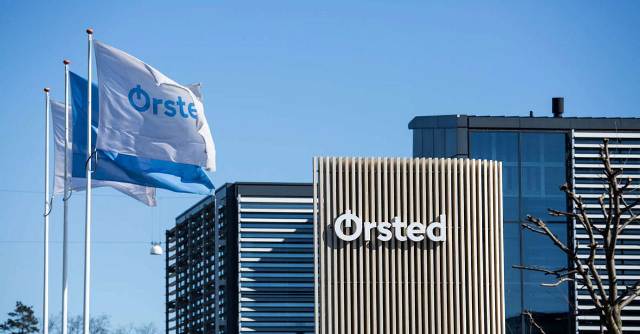Orsted has announced that it has achieved a historic milestone — becoming the first energy company globally to meet its science-based 2025 decarbonisation target. Orsted has reduced its carbon emissions by 98 percent and now generates 99 percent of its energy from renewable sources, the renewable energy major said ahead of COP30 in Brazil.
The achievement marks the completion of Orsted’s transformation from one of Europe’s most fossil-fuel-intensive utilities to a global leader in renewable energy, particularly offshore wind. Compared to its 2006 baseline, Orsted’s scope 1 and 2 emissions intensity has fallen by over 98 percent, fulfilling its 2025 science-based target and positioning it as a model for the global energy sector.
Pathway to Transformation
Orsted’s success stems from multiple initiatives:
Large-scale deployment of offshore wind and other renewable energy sources
Closure of coal-fired plants and conversion of remaining units to certified sustainable biomass
Divestment from oil and gas assets
Electrification of its vehicle fleet
Transition to renewable electricity for internal consumption through green certificates
These steps have enabled Orsted to reduce its operational carbon footprint drastically, aligning with its long-term science-based targets validated by the Science Based Targets initiative (SBTi).
FACT BOX – Orsted’s Decarbonisation Milestones
2009: Orsted launches its vision to shift from fossil fuels to renewables.
2017: Sets first SBTi-validated scope 1–2 target and commits to phase out coal.
2021: Becomes the first energy company to set a science-based net-zero target for the entire value chain (scopes 1–3).
2024: Closes its final coal-fired power station.
2025: Achieves a 98 percent reduction in scope 1–2 greenhouse gas emissions since 2006 and reaches a 99 percent renewable energy share.
“In just over a decade, Orsted has undergone one of the fastest and most extensive green transformations in the energy industry,” said Ingrid Reumert, Senior Vice President for Global Stakeholder Relations at Orsted.
“With a 99 percent renewable energy share and 98 percent emissions reduction, our green transformation is effectively complete. Decarbonisation has always been central to our mission of providing green, affordable, and secure energy worldwide,” Ingrid Reumert said.
Focus on Full Value Chain Decarbonisation
Having achieved its near-term goal, Orsted is now targeting full net-zero emissions across its entire value chain (scopes 1–3) by 2040. The company’s roadmap includes working with suppliers and partners to decarbonise materials such as steel and copper and exploring sustainable maritime fuels to reduce logistics-related emissions.
Call for Accelerated Climate Action at COP30
Orsted’s announcement comes as COP30 discussions intensify around the need for accelerated global decarbonisation.
“Rapid electrification through renewables is key to achieving global climate goals. Governments must provide the right frameworks and long-term certainty to enable investments in clean energy technologies such as offshore wind,” Ingrid Reumert said.
Baburajan Kizhakedath

